Inside Issue 3: New and Forthcoming
Ronald KL Collins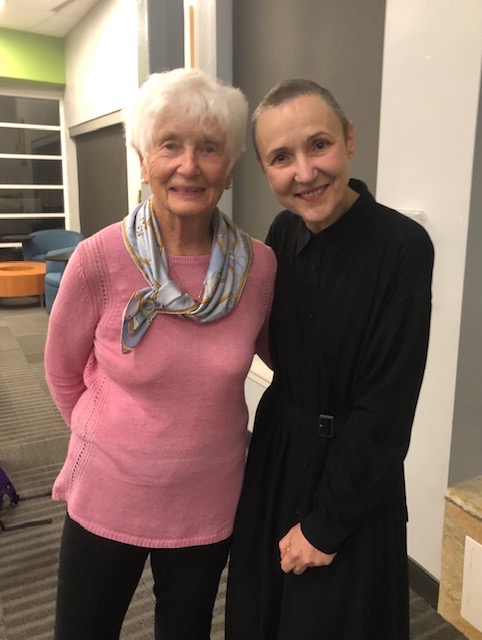
Forthcoming
Among other things, the next issue will contain:
— A Q&A Interview with Jacques Cabaud
— “Unfinished: On Venice Saved – A Q&A with Silvia Panizza and Philip Wilson”
— Brenna Moore, “The Intimacy and Resilience of Invisible Friendship: Marie Magdeleine Davy and Simone Weil”
New in this issue
In this issue, we are pleased to post our geographical timeline – that is, a list of the countries, cities, and regions in which Simone Weil grew up and later traveled to in her lifetime. As with the technological creation of the site, we thank Sam Shelton, Scott Rier, and Joanna Ng at KINETIK for their help in constructing the geographical timeline once we provided the requisite information.
New Topical Tags (in Explore tab)
Commentary
- Ronald Collins, Belaboring the Point (Oct. 2021)
Review: Meaney-Kotva Exchange
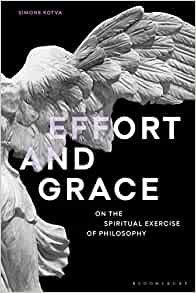
- Marie Cabaud Meaney, “The Paradox of Will and Grace: A Review of Kotva’s Effort and Grace”
- Simone Kotva, “Kotva Replies: “Thinking through the Middle Voice”
- Marie Cabaud Meaney, “Rejoinder: Meaney Responds to Kotva“
Book Review Essays
- Soto Tsuruta, “Action and Contemplation: A Commentary on Vance Morgan’s Weaving the World: Simone Weil on Science, Mathematics, and Love”
- George M. Alliger, “Social Capital versus Roots: A Review of Bowling Alone”
New Resource
- Ronald Collins, A Detailed Listing of Topics Contained in Parts II and III of The Need for Roots (Oct. 2021)
Call for Papers
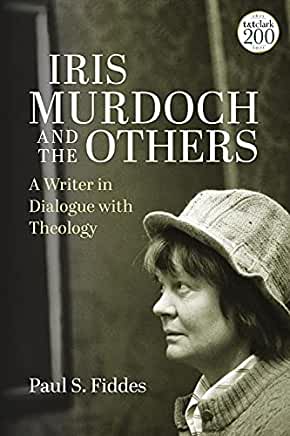
New Books
- Paul S. Fiddes, Iris Murdoch and the Others: A Writer in Dialogue with Theology, T&T Clark (Dec. 2, 2021)
- Louis Markos, From Plato to Christ: How Platonic Thought Shaped the Christian Faith, IVP (2021)
New Books from Abroad
- Jean-Marc Ghitti, Passage et présence de Simone Weil, état des lieux, KIME (Sept. 17, 2021)
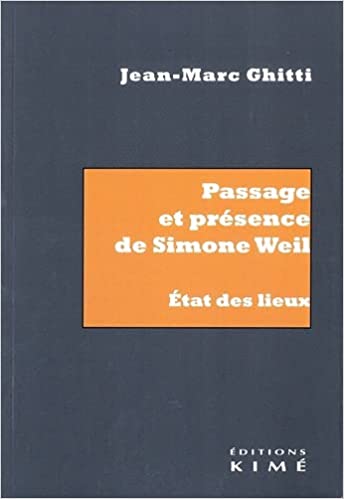
If the most important philosophical figure of the twentieth century was a woman, it would be Simone Weil (1909-1943), as we begin to discern today. ?By traveling through the places through which she passed, this book attempts to reconstruct the intellectual and spiritual path of Simone Weil. To each place, which constitutes a mental moment, is attached a major questioning of her work, so that at the end the thought of the philosopher appears in its entirety: it is first of all a philosophy of the mind where the miracle of thought lies in the mystery of the inspirations that cross us. But Simone Weil can only follow the thread of her thoughts if she confronts the current events of her time, from 1929 to 1943, and through the very different social circles where she sows trouble (from syndicalism to free France in London, through the world of factories, the Spanish War, the exodus of French Jews) and the meetings she makes.
It is a thought both very inner (mystical even) and completely open to the economic, social and political problems of a slice of History that these pages try to reconstruct from the concrete geography that his life draws. However, the book refuses to enclose Simone Weil in her time and takes the risk of updating her thinking by questioning what has become of the countryside, the cities and the countries she has crossed, until making an inventory of the situation of France today. A reading of places from his thought; a reading of his thought through the places.
- Robert Chenavier, Simone Weil, une Juive antisémite?, Paris: Gallimard (October 21, 2021)

Abstract: A persistent controversy pursues the memory of Simone Weil about the alleged “anti-Semitism” in some of her writings. It is a fact that, within the framework of the spiritual evolution that led Simone Weil to approach Christianity, she made some harsh remarks on the religion of the Hebrews, since her project was to purge the Christian religion of its Jewish imprint in favor of its Greek component. Can such anti-Hebraism be equated with anti-Semitism? The question continues to surface on a regular basis. Robert Chenavier, who edited the last published volumes of the Works of Simone Weil, methodically takes up the matter, on the basis of his intimate knowledge of the author’s thought, in order to dispel once and for all the fallacies and interpretations that fuel this accusation. He examines in particular the text of Simone Weil considered to be the most “anti-Semitic,” which she wrote while in London, this in connection with her work for the Free French. This book will be the definitive work on the subject. {translation adapted from Intelligent Translator app}
New Articles
- Louise Carroll Kelley, Simone Weil and St. Teresa of Calcutta on Affliction, Logos: A Journal of Catholic Thought and Culture, vol. 24, no 4 (Fall 2021), pp. 56-87
- Alejandra Novoa Echaurren, “Sacrifice as the key of unity in the work of Simone Weil,” Open Insight, vol XII, no. 25 (May-Aug. 2021), pp. 33-64
Newly Posted Articles
- Stuart Jesson, “Compassion, Consolation, and the Sharing of Attention,” in Simone Weil and Continental Philosophy, London: Rowman & Littlefield, Rebecca Rozelle-Stone, ed., (2017)
- Stuart Jesson, “‘The question in each and every thing’: Nietzsche and Weil on affirmation,” International Journal for Philosophy of Religion, vol. 86, no.2 (2019) pp. 131-155.
- Francesca R. Recchia Luciani, “Weil and Wittgenstein in Winch’s “Reading”: Philosophy as a Way of Life” in Michael Campbell & Lynette Reid, eds., Ethics, Society and Politics: Themes from the Philosophy of Peter Winch (2020), pp 149-166.
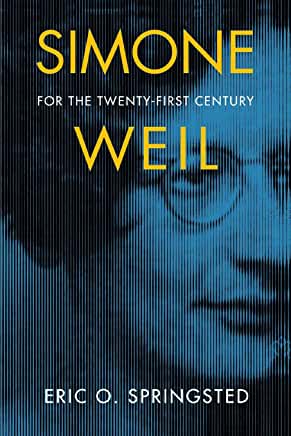
New Book Reviews
- Stephen J. Plant, Book Review: Simone Weil for the Twenty-First Century, Philosophical Investigations, vol. 44, no 4 (October 2021) pp. 448-451.
- Becca Rothfeld, “Principled to a Fault And the violent originality Simone Weil,” The Hedgehog Review (Summer 2021) (reviewing Robert Zaretsky’s The Subversive Simone Weil)
Newly Posted Book Review
- John Cogley, The Long, Lonely Road: A Review of Gravity and Grace, New York Times Book Review, Aug. 31, 1952
Newly Posted Online Dissertations

- Sarwar A. Abdullah, ‘Negative Faith: The Moment of God’s Absence’: Simone Weil on Affliction, MA Thesis (2014)
- Annette Szer Baslaw, “The Educational Concepts of Alain (Emile-Auguste Chartier), 1868-1951,” Ph.D. dissertation, New York University
- Anna Jean Brown, “Love’s justice: The political thought of Simone Weil,” Ph.D., Fordham University (1988, fill text in link)
- Silvia Panizza, “The Importance of Attention in Morality An Exploration of Iris Murdoch’s Philosophy,” Ph.D. dissertation, University of East Anglia School of Politics, Philosophy, Language and Communication Studies Department of Philosophy, (September 2015)
New Video
- Toril. Moi, “Simone Weil: Writing for a General Intellectual Audience,” YouTube (Sept. 15, 2021)
New Video from Abroad
- Antonio Gnoli, Teresa Forcades e Roberto Esposito, “Simone Weil,” Festival della Politica 2021, YouTube (Sept. 15, 2021)
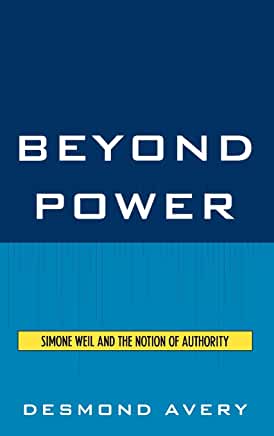
Recommended Reading
- Desmond Avery, Beyond Power: Simone Weil and the Notion of Authority, Lexington Books (2008)
- James L. Porter, Homer: The Very Idea, Chicago: University of Chicago Press (2021)
- Howard F. French, Born in Blackness: Africa, Africans, and the Making of the Modern World, 1471 to the Second World War, Liveright (2021)
- Katharine Hayhoe, Saving Us: A Climate Scientist’s Case for Hope and Healing in a Divided World, One Signal/ Simon & Schuster (2021)
- Robert Kagan, “Our constitutional crisis is already here,” Washington Post (Sept. 23, 2021)
New Event
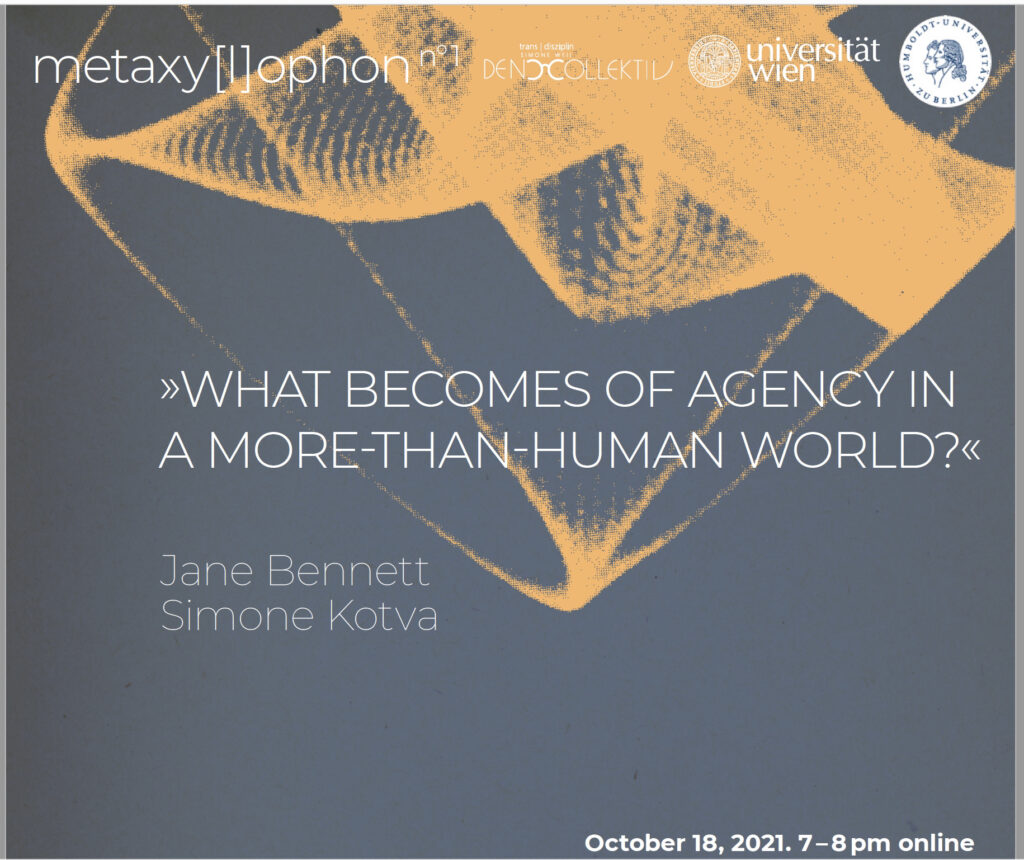
Simone Weil denkkollektiv to host “What Becomes of Agency in a More-Than-Human World?“
Submissions
While the vast majority of the substantive content on Attention is solicited, we do consider submitted proposals for articles or reviews (see submission guidelines & submission form).
Subscribe
If you would like to subscribe to Attention’s bi-monthly issues, go here. It’s free and we promise not to share your information.
7 Recommendations
